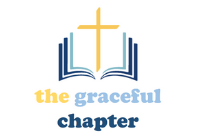Preparing for life’s big moments, like getting married, buying your first house, or starting a family, can be daunting. You’ll want to make the right choices without compromising your faith or financial health – and striking a balance can feel overwhelming.
Fortunately, it is possible to balance faith with the practical aspects of financial planning. The key lies in understanding that faith and finances are not mutually exclusive but, instead, can complement each other beautifully.

Let’s explore how below.
Combining the Power of Planning and Prayer
Planning for your financial future does not mean you are taking the reins from your faith. Instead, consider it as aligning your resources with God’s plan for you.
For example, starting a savings plan for your first home or setting aside funds for your child’s education can be powerful acts of faith.
Pray for guidance on each financial decision and find peace in knowing that your plan reflects both your financial wisdom and spiritual trust. It’s about making the most of what you’ve been given, using the resources available to you – and, of course, prayer and faith are integral to this process.
How Financial and Spiritual Wealth Can Go Hand In Hand
Embracing financial planning does not equate to valuing money over faith. Rather, it’s recognizing that financial stability can provide a platform for greater generosity and fulfillment of God’s will.
Wealth managed wisely can support not only your family’s needs but also extend a helping hand to those less fortunate and, ultimately, your community as a whole. For example, well-planned finances would allow you to integrate tithing into your budget and manage charitable giving without compromising your family’s financial health.
Smart Savings Strategies for Future Milestones
Facing the future with financial confidence means preparing for life’s big moments with smart savings strategies. Consider the cost of a wedding, which, according to The Knot, hit an average of $35,000 in 2023.
A figure like this can certainly take a toll on any family’s financial health – especially families that have not been saving systemically or have overlooked the costs involved with wedding preparations.
To be prepared for upcoming life events, milestones, and setbacks, start by identifying your goals and timeline. Then, automating your savings can ensure you’re consistently working towards your goal, making that significant expense more manageable when the time comes.
Choosing the Right Financial Tools
Selecting financial products and recommended credit cards like those from Capital One, that align with your goals can increase your chances of achieving them.
Some of these tools include:
- Cash and Rewards Credit Card: Cash credit cards are great for earning cash back on daily purchases, while rewards credit cards are excellent for couples who love to travel, offering great miles for every dollar spent.
- Savings High Yield Account: Best for parking your savings and earning interest towards future goals like a wedding or down payment on a house.
- Certificate of Deposit (CD): Suitable for long-term savings where you won’t need immediate access to your funds, offering higher interest rates.
- Joint Checking Account: Perfect for managing shared expenses and saving for short-term financial goals.
- Investment Account: For those looking to grow their wealth over time, investing in stocks or mutual funds can be a smart choice.
- Health Savings Account (HSA): Especially useful for future family planning, offering tax advantages for medical expenses.
Each of these tools serves a different purpose, from earning rewards on everyday expenses to growing your savings for future milestones.
Bouncing Back from Life’s Curveballs: Recovery Post-Accidents or Illness
After an accident or illness, the road to recovery can be both a physical and financial challenge. Keeping a strong faith during these times is crucial, as it offers the strength and patience required for healing.
Alongside spiritual support, engaging with financial and healthcare specialists is key. They can help navigate insurance claims, medical bills, and create a plan for financial recovery. This dual approach ensures you’re not only leaning on your faith for emotional and spiritual recovery but also taking concrete steps toward financial stability.
Investing in Your Future Without Compromising Values
Investing is a powerful tool for securing your financial future and benefiting from the magic of compound interest. But, it’s important that these investments reflect your personal and spiritual values.
Fortunately, there are numerous options for ethical and/or Christian investing, allowing you to grow your wealth in a way that is consistent with your beliefs:
- Socially Responsible Funds: Invests in companies committed to environmental, social, and governance (ESG) criteria.
- Faith-Based Funds: Focuses on companies that align with specific religious principles.
- Green Bonds: Funds projects with positive environmental impacts, such as renewable energy development.
- Ethical ETFs (Exchange Traded Funds): Offers diversified portfolios free from companies involved in controversial activities.
- Impact Investments: Direct investments in companies or projects aimed at generating a measurable, beneficial social or environmental impact alongside a financial return.
These investment options ensure that you don’t have to compromise your values for growth, allowing for peace of mind and financial development in tandem.
Securing Your Golden Years: Crafting a Faith-Filled Retirement Plan
Creating a retirement plan that resonates with both your financial needs and spiritual values involves concrete actions like maximizing your employer’s 401(k) match, investing in IRAs, and considering Roth options for tax-free growth.
Of course, you should pray for wisdom as you make important decisions such as what percentage of your income to save or how to invest. Consulting with a financial adviser who respects your faith can also guide you in making informed decisions that ensure a comfortable and secure retirement.
Insurance: A Safety Net for Faithful Families
For families rooted in faith, insurance serves as a practical safety net, reflecting the wise management of earthly resources. Simply put, life, health, and disability insurance policies protect against unforeseen events, offering peace of mind and financial security.
These products may seem unnecessary, but it is important to see them as a tangible expression of love and responsibility, ensuring that your family’s needs are covered and that you are trusting God to provide through the means available.
Related Posts
Charitable Giving: Balancing Generosity with Financial Wisdom
Generosity is a cornerstone of faith, and charitable giving should be a joyous reflection of this principle. To balance this with financial wisdom, set a budget that includes tithes or donations, allowing you to support the causes close to your heart while living within your means.

Navigating Financial Challenges with Grace, Faith, and Determination
Confronting financial challenges requires more than strategy – it demands a mindset anchored in grace, faith, and determination.
A way to keep your motivation and determination high is by viewing setbacks through the lens of faith transforms obstacles into opportunities for growth and reliance on God’s provision. Embrace these moments with a prayerful heart, seeking wisdom and guidance.




